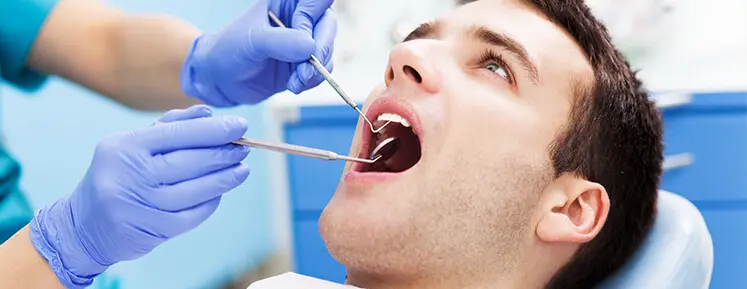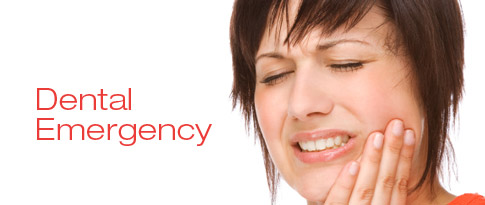Emergency Situation Dental Care: Quick Alleviation for Tooth Discomfort and Accidents
Emergency situation dental treatment is a crucial part of keeping dental health and wellness, particularly when unexpected occurrences occur or extreme discomfort arises. Understanding the indicators that necessitate instant attention can substantially influence results, protecting against additional problems. From severe toothaches to traumatic injuries, recognizing the necessity of these scenarios is vital. However, lots of people continue to be uncertain about the particular situations that warrant punctual intervention. This uncertainty commonly causes hold-ups in seeking aid, which can intensify the concern handy. Discovering the typical kinds of dental emergencies and the proper reactions is essential for educated decision-making during these defining moments.
Understanding Dental Emergency Situations
Dental emergencies frequently arise without caution, requiring punctual interest to mitigate discomfort and stop more difficulties. Understanding the nature of oral emergencies is important for both individuals and medical care suppliers to make sure reliable monitoring. These circumstances can range from intense pain and injury to infections that require instant treatment.
One key element of oral emergency situations is acknowledging the indications that demand immediate treatment. Signs such as extreme toothaches, swelling, or bleeding can show underlying problems that, if left neglected, may result in significant health issue. Furthermore, injury to the mouth, whether from sporting activities injuries or crashes, can create damages to teeth and surrounding cells, requiring speedy analysis and treatment.
Comprehending the seriousness and potential consequences of dental emergencies empowers individuals to make educated choices, ultimately leading to far better results and improved dental wellness (emergency dental edmonton). By prioritizing prompt focus to oral dilemmas, individuals can reduce pain and protect their total wellness.
Common Kinds Of Dental Emergencies
Encountering various types of oral emergencies calls for a detailed understanding of the problems that necessitate prompt treatment. Usual oral emergency situations can significantly impact a patient's dental health and general well-being.
Extreme discomfort usually indicates an underlying concern that needs prompt treatment. Another usual emergency is a busted or cracked tooth, generally created by trauma or too much force.
Knocked-out teeth stand for a critical emergency situation, where immediate action is vital for prospective reimplantation. Preservation of the tooth in an ideal tool, such as milk or saline, is important while seeking professional assistance.
Additionally, oral abscesses, characterized by local infection, existing as swelling and pain. These call for urgent therapy to prevent the spread of infection.
Last but not least, soft tissue injuries, including lacerations or cuts to the gums, cheeks, or tongue, can likewise demand emergency care. Attending to these problems swiftly is vital in reducing complications and ensuring optimal dental wellness.
When to Seek Immediate Treatment

Mishaps resulting in oral trauma-- such as a knocked-out tooth, fractured or broke teeth, or injuries to the gums-- demand prompt care (emergency dentist edmonton). In the instance of a knocked-out tooth, time is important; it must be returned or kept in milk or saline and required to the dental professional within an hour for the best possibility of effective reattachment
Furthermore, extended blood loss from the mouth or any oral lacerations that do not stop might represent a much more major condition needing prompt intervention. Dental swelling, specifically if it influences breathing or swallowing, is one more red flag. On the whole, if you experience any type of unexpected adjustments in your oral wellness or physical pain that rises promptly, look for prompt dental care to minimize possible problems and ensure your health.
Managing Discomfort in the house
Effective administration of oral discomfort in your home can dramatically relieve pain while waiting for specialist treatment. Numerous techniques can be used to resolve discomfort and reduce inflammation properly.
Non-prescription anesthetics, such as ibuprofen or acetaminophen, can supply short-term relief. Make certain to adhere to dose instructions on the product packaging to prevent adverse impacts. Applying a chilly compress to the outside of the cheek can likewise assist numb the location and minimize swelling. This technique is particularly effective within the very first 24-hour following an injury or beginning of discomfort.
In addition, maintaining oral health is crucial. Delicately rinsing the mouth with warm seawater can aid clean the affected area and reduce inflammation. Clove oil, known for its all-natural analgesic properties, can be applied sparingly to the periodontal area using a cotton round description for local alleviation.
Avoiding certain foods-- such as those that are hard, crunchy, or very hot or cold-- can avoid exacerbation of discomfort. Ultimately, making certain sufficient hydration and rest will certainly support general recuperation while waiting on professional oral treatment. These natural home remedy can provide a significant level of relief till a dental professional can be gotten in touch with.

What to Expect at the Dental Expert
A check out to the dental practitioner can often provide stress and anxiety, however understanding what to anticipate can reduce problems and promote a smoother experience. Upon arrival, you will commonly sign in at the function, where you might need to fill up out kinds regarding your clinical background and dental concerns. Following this, an oral aide will guide you to the examination area and take visit site required radiographs, if site link appropriate.
Once settled, the dental professional will conduct a comprehensive exam of your teeth and gums. If you are experiencing pain or discomfort, be certain to interact this clearly, as it will aid the dentist tailor the exam to your requirements. Depending on the findings, they may recommend treatments, which might involve filling up dental caries, doing extractions, or various other procedures.
After the procedure, the oral team will certainly give aftercare guidelines to aid manage your healing successfully. Bear in mind, open communication with your dental practitioner is key to guaranteeing a positive experience and accomplishing optimum oral health.
Final Thought
In final thought, emergency dental treatment plays a vital function in alleviating tooth discomfort and dealing with urgent oral problems. Identifying the indicators of oral emergencies and recognizing when to look for instant care can substantially affect oral health and wellness outcomes. Timely intervention not just minimizes pain but also avoids prospective issues. People are urged to acquaint themselves with effective pain management strategies at home, while also being gotten ready for the procedures that may be carried out by dental experts during emergencies.
Emergency situation oral care is a vital part of keeping dental health and wellness, particularly when unanticipated occurrences occur or extreme pain develops.Dental emergencies regularly occur without caution, requiring prompt focus to reduce pain and protect against additional complications.In final thought, emergency oral care plays a crucial duty in minimizing tooth pain and attending to urgent oral issues. Recognizing the indicators of dental emergencies and comprehending when to look for immediate treatment can significantly affect oral wellness outcomes. People are encouraged to familiarize themselves with reliable pain monitoring techniques at home, while additionally being prepared for the procedures that might be carried out by dental specialists throughout emergencies.